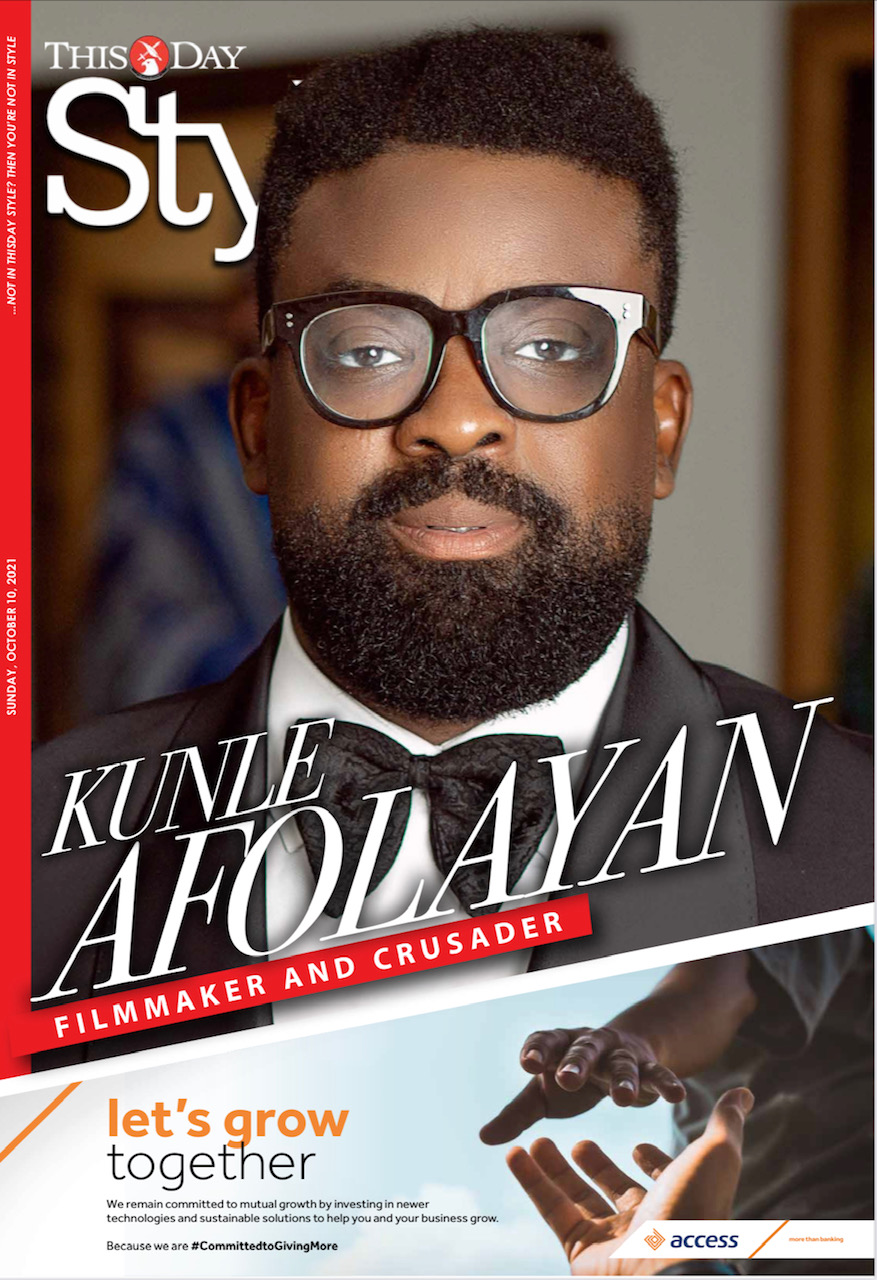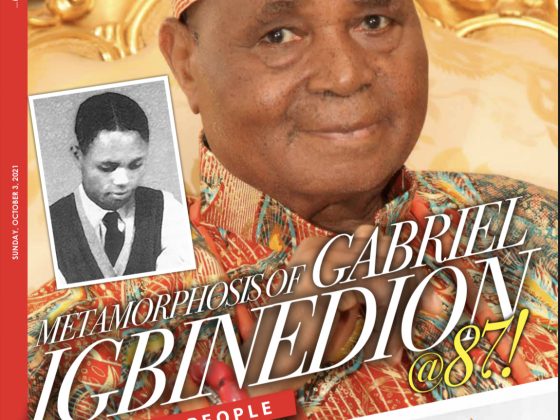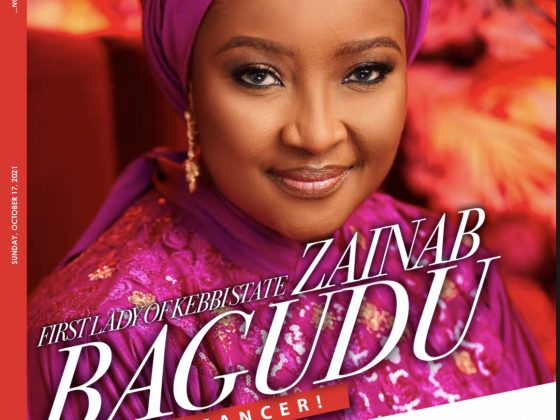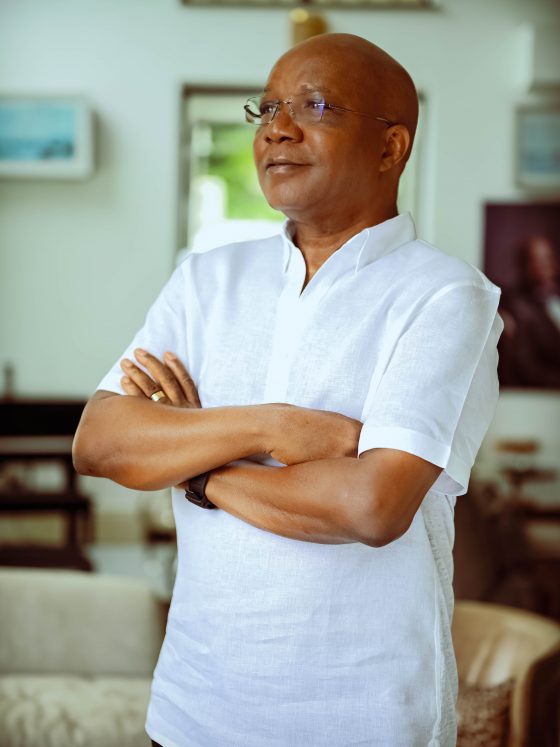FILMMAKER AND CRUSADER
When the name Kunle Afolayan is mentioned, what comes into mind is the quality and depth of his movies. Over time, the consistency of his delivery has remained excellent. In his recent movie Swallow, Kunle Afolayan again re-echoes what he is known for; digging up history, dwelling on social issues not to mention his emotive and educating movies.
Swallow, a Netflix film, scripted from a book written by Sefi Attah, is a movie that recreates the 1980s in Nigeria when the country’s government declared zero tolerance for indiscipline. The film has a theme on drug trafficking as a build-up to self-discovery. The movie also highlights negative persuasion as a threat to morality, as seen in the case of Rose and Tolani Ajao.
In this interview with Azuka Ogujiuba, the Movie Producer/ Director talks about the process of making the movie, the casting, why and how he selected his actors, and so much more.
What inspired you to make the movie Swallow?
I think Swallow is a remarkable film because of the subject matter which is one of the things that got decadent in the society. It’s not just a film about entertainment, it is a film that addresses social issues and things that need to be addressed, for me, it quite a special film.
Why was it vital for you to make the book Swallow into a film?
It is important to adapt Sefi Atta’s book into a film because for me, first of all, it captures a period that was very significant in the history of drug-trafficking in Nigeria in the 80’s. A lot of young people these days, were not born then or were relatively young. But I am sure some of these people today might have tried to do the same at some point or are trying to do so now probably. So I feel the film is one of the tools that can be used as a corrective measure to prevent that and also to enlighten and caution people. If you look all the films we have made in Golden Effects and KAP motion pictures, we always give more than entertainment, we give lessons to learn. We send a message. Hence, our films are quite educative and informative but at the same time entertaining.
How did yourself and Sefi Atta come to terms with adapting her book to a movie?
Sefi Atta is one of the recognized and brilliant writers we have in Nigeria. I had never read any of her books until someone recommended Swallow. At that time, I was discussing with Netflix. They asked that I pitch a project, so I started fishing for books l can make some adaption with. I read quite a number of her books, Swallow being one of them. After reading it, I got fascinated because firstly, the time period and secondly, the subject matter. I also liked her style of writing because it is very natural and easy to read. I visualized myself in Ebutte-metta in the ’80s while reading the book, so I reached out to her. After we had exchange one or two pleasantries and E-mails, I got her number and reached out to her. She told me, “Remember, I came to you in 2010 that we should do something together. Anyway, here we are!” She agreed to the partnership. I must point out that it is also rare that the writer of the book works on the screenplay or the adaptation for the film. But in this case, I decided to involve her because I wanted to retain most of the dialogue and style in the book. We figured it was better if we both worked on the screenplay and it was a good collaboration.
Any time one watches your movies, it is obvious you invest heavily on location shooting. Where did you shoot Swallow?
Let me even start from Citation, we shot Citation in 2019, and we were so lucky that as soon as we finished filming was when the pandemic began, so all the time there was a lockdown, we were used that opportunity to edit and do post-production for Citation. In January, we decided to shoot Swallow. At that time, the lockdown had eased to an extent, but we still needed to follow all the protocols and guidelines, precautions and all. Since we were already used to the rudiments of Covid, we decide to put all required measures in place. You can’t do social distancing if you are filming, but everyone was wore face masks. We had sanitizers and medics on set throughout the shoot. We shot in Lagos and partly in Abeokuta but predominantly in Lagos. It wasn’t difficult to pull it off because we had become accustomed to the new reality
You have a love for historical movies which also reflects in your dressing. Your sense of style tilts toward fashion of the 60s/70s. What is your fascination with periodic pieces?
Let me put it this way, I think different people have different styles, every time I see Alex Ekubo, he is always wearing black, and sometimes it is a form of identity. When he first started, he wanted to create a niche for himself. An identity of sorts if you like. For me, firstly, I don’t do beyond myself. Secondly, it is not about how expensive a brand is, and more so, I am local. People’s definition of being indigenous seems different. I am from Kwara and Oyo, and with the combination of the two, I am a local sell. I try to be as authentic as possible and more so, we have local talents we can sell as export, from fashion to your looks, your products and whatever you do. I have just tried to create my own identity and influence people to believe that what we have here can sustain us.
How long does it take you to shoot movies like Swallow?
We filmed for five weeks, pre-production was for five to six months before the shoot, post-production took another five months.
You are a very good storyteller. What motivates you to continue to tell African stories?
I get inspired by the environment, life, people, the country, the culture, and all of that.
What can you tell us about Netflix in Nigeria? To what extent do you think they are investing in Nigerian content?
I think Netflix is doing great because they are not only buying and acquiring content, they are also investing in the industry because they have supported some educational institutions. They have trained many Nigerians, even outside of Nigeria, to better their craft, so I think they are here for good.
Do you see any of your kids following your footsteps in future?
If any of them want to do what I do, I will support it, but I can’t force what I do on any of them; they can choose whatever path they want to take.
Your father was a very respected actor, Movie Producer/Director. Do you have any plan to do a movie about his life in the future?
I will thank my father for leaving such a legacy. The thing about filmmakers and filmmaking is the fact that we don’t die because our work will always be there as references. My father has done his bit, and we have managed to restore some of his films. In fact, some of them were shown recently, and we are still going to reshow them. We plan on doing a remake of his film, why not, but when the time comes. I am working on my first book. Of course, my father featured greatly in the book, so people will get to know more about him.
When you are not at work, how do you relax?
Even relaxing for me is work. I watch many movies, hang around with friends, drink my whiskey, eat my Nkowbi, smoke my cigar, and dance. I am a jolly good fellow.
Are there still things you desire to do?
The thing is that things come to me, then I plan for it. For example on September 30, we are opened KAP Hub. This has always been a dream. It is a one-stop place for creatives to come. There is a film school, a restaurant and bar, KAP cinema that seats 120 capacity and a studio. These have always been things I wanted to do. To see people go in and out, learn, eat, be merry, and dance. We will also be doing live band and all of that. I have just achieved this dream. What is next is not up to me. It is up to whoever put things in my head, and that is God.


















